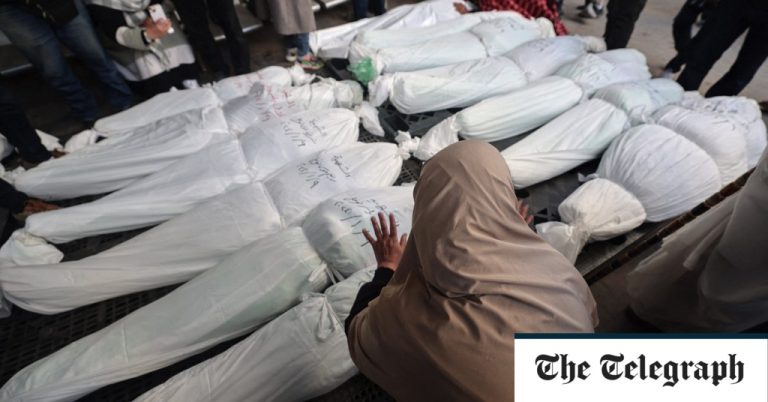What is the International Court of Justice (ICJ) and who are the judges?
The ICJ is distinct from the International Criminal Court, also in The Hague, which hears cases of war crimes against individuals.
The ICJ deals with legal disputes between states, including charges of genocide. Its power in this regard is derived from United Nations Convention on the Prevention and Punishment of the Crime of Genocide, of which Israel was an early signatory.
The case will be heard by 15 judges from 15 countries, including one from Israel. Joan Donoghue, an American lawyer and former US State Department official, is currently the president of the court and its decisions are made by majority verdict.
Prof Yuval Shany, chair of International Law at the Hebrew University of Jerusalem and a former chair of the UN Human Rights Committee, described the ICJ as a “proper court of law” that is “relatively independent”.
Who has brought the case and why?
The case has been brought by South Africa which has never forgiven Israel for its support of the country’s old apartheid regime.
Like various others, including Human Rights Watch and Amnesty International, it accuses Israel itself of committing the crime of apartheid in the occupied territories.
By being seen to back the Palestinian cause on the international stage, South Africa may also hope to deflect attention for its support of Russia in the war with Ukraine.
What is the legal definition of genocide and what are the hurdles to proving it?
The Genocide Convention, adopted in 1948, defines genocide as acts committed “with intent to destroy, in whole or in part, a national, ethnical, racial or religious group”.
Such acts can include:
- Killing members of the group;
- Causing serious bodily or mental harm to members of the group;
- Deliberately inflicting on the group conditions of life calculated to bring about its physical destruction in whole or in part;
- Imposing measures intended to prevent births within the group;
- Forcibly transferring children of the group to another group
The definition of genocide is narrower than most people assume and the most difficult element to prove is intent.
“To constitute genocide, there must be a proven intent on the part of perpetrators to physically destroy a national, ethnical, racial or religious group,” says the UN. “Cultural destruction does not suffice, nor does an intention to simply disperse a group”.
What is South Africa asking the court for?
At this stage, South Africa is asking the court to open a case of genocide against Israel and to issue urgent provisional orders designed to stop or at least mitigate its impact.
If the court found it was “plausible” that a genocide was being committed, said Prof Shany, it could order a range of measures including a complete cessation of activities but also more limited mitigations including such as the creation of humanitarian corridors or safe areas.
What is the nub of South Africa’s case for Israel committing genocide?
In an 84-page pre-trial filing sent to the court on December 29, South Africa says that by killing Palestinians in Gaza and by creating conditions of life “calculated to bring about their physical destruction,” Israel is committing genocide against them.
It says this is not random but planned and places its charges “in the broader context of Israel’s conduct towards Palestinians during its 75-year-long apartheid, its 56-year-long belligerent occupation of Palestinian territory and its 16-year-long blockade of Gaza.”
To make its case for the physical elements of genocide, South Africa points to the Israeli bombing campaign which has laid much of the enclave to waste, the forced evacuation of some 1.9 million Palestinians and the killing of over 23,000 people, many of them children, according to the Gazan health authorities.
It also details Israel’s failure to allow into Gaza enough food, water, medicine, fuel, shelter and other humanitarian assistance.
“South Africa’s case is that those acts and omissions are genocidal in character, as they are committed with the requisite specific intent to destroy Palestinians in Gaza as a part of the broader Palestinian national, racial and ethnic group,” says the filing.
“The acts are all attributable to Israel, which has failed to prevent genocide and is committing genocide in manifest violation of the Genocide Convention,” it adds.
